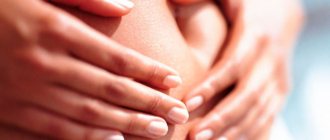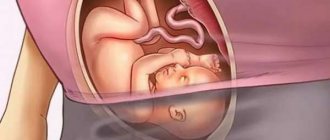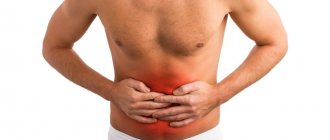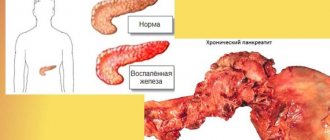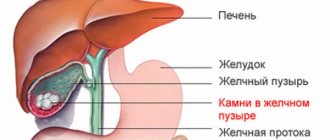Causes of discomfort in the lower abdomen
Past illnesses for which you had to take antibiotics, pregnancy, stress, hereditary gastrointestinal diseases - all these are the most common factors leading to discomfort in the lower abdomen. It is possible to accurately determine the cause of discomfort with an examination, because the occurrence of pain is also due to factors such as:
- inflammation of the uterus and appendages in women;
- period;
- prostate disease in men;
- inflammatory processes of the bladder, ureter;
- appendicitis;
- compression or stretching of scars, adhesions, tumors in the abdomen;
- referred pain, when the source of discomfort is far from the pelvic area, but unpleasant sensations manifest themselves in it.
Pain and bloating
Irritable bowel syndrome (IBS), which is accompanied by a feeling of heaviness, bloating, and diarrhea - this is what half of the planet's inhabitants have encountered at least once. Not everyone goes to the doctor, preferring to solve a delicate problem on their own, which is not always justified. In some cases, it is really only necessary to change your diet, change your lifestyle, and reduce your stress level. And yet, discomfort in the abdomen, accompanied by the formation of gases in the intestines, is often not an independent disease, but indicates serious disorders of the gastrointestinal tract.
During pregnancy
If a pregnant woman has pain in the lower abdomen, especially in the early stages, then this is a cause for concern. When the pull in the lower abdomen is not too intense, this sensation is often caused by a restructuring of the body. The alarm should be sounded when pain in the lower abdomen during pregnancy is severe, especially if symptoms such as headache, fever, and spotting are added to the discomfort. No self-medication - seek immediate medical help, but it is better to call an ambulance.
Nausea and weakness
If pain is the fastest way the body warns of danger, then the accompanying feeling of discomfort in the abdomen, weakness with nausea, call for immediate attention to your health. Food poisoning is considered the leader in the list of reasons that cause such a reaction in the body. But we must not lose sight of factors such as gastrointestinal pathology, pregnancy, excessive physical activity, severe stress, and side effects of medications.
- How to get rid of facial wrinkles with essential oils
- Chicken with potatoes in the oven: recipes with photos
- How to prepare dietary desserts for weight loss
Heaviness after eating
Discomfort in the stomach, if the cause of the unpleasant sensation is situational in nature, for example, after a feast, will soon go away on its own. The situation is much more serious when the cause of severity is inflammation of the gastric mucosa. Along with bloating, gas formation, or when heartburn is observed after eating, belching, chronic or inflammatory processes of the digestive tract can be the cause of abdominal discomfort. Without a thorough examination and subsequent treatment, this unpleasant sensation simply cannot be dealt with.
Constipation
Bowel movement that occurs with a delay of more than two days is commonly called constipation. Although regularity is determined by the physiological characteristics of each individual, the discomfort and painful sensations that arise due to it are considered a deviation. Especially if constipation takes the form of chronic, indicating a violation of the motor function of the large intestine, its incomplete cleansing. Increased fatigue, nausea, and headaches are common symptoms of abdominal discomfort.
Pain in the right side
Often associated with various kinds of diseases of internal organs. Violation of proper functioning can cause severe pain, and this is a direct signal to seek medical help. Discomfort in this area of the abdomen is life-threatening, because the causes of its occurrence can be either trauma or inflammation of the pancreas, gallbladder, liver, even hepatitis. They should be treated with no less caution when seeking medical help, as in the case when the lower abdomen hurts on the left.
The child has
For infants, discomfort is often associated with colic, which is caused by accumulated gases. Pain in older children is provoked by an imbalance of microflora, as a side effect after taking medications or introducing new foods. It happens that discomfort is caused by an intestinal infection, and then a special diet is required, read more about it on sovets24.ru. Feature of the children's digestive system: weak ability to cope with aggressive external factors. Hence dysbacteriosis, diarrhea, constipation, diathesis, parasites, which can cause discomfort and pain in the child.
- Watermelon with vodka - how to pump it up with a syringe and tincture recipes. How to make a watermelon infused with vodka
- Papilloma on the genitals
- Heel spur - treatment: effective remedies and methods
Functional dyspepsia, or “offended stomach”
I receive a lot of letters with the following content: “I am 40 years old, for 20 of them I have been suffering from constant belching, bitterness in the mouth, heartburn, a feeling of fullness in the stomach, and pain. They find gastritis, chronic pancreatitis, chronic cholecystitis and bile duct dyskinesia, but no one can help me! Help!".
When you start to analyze medical documents, in 99% of cases it turns out that there is no significant pathology there! But our doctors don’t like or don’t know how to say “no”. There will always be “possible inflammatory changes”, “superficial gastritis”, “indirect signs of chronic pancreatitis”, “suspension and flakes in the gallbladder”.
Or they are afraid of responsibility: “The patient has so many complaints, but I will say that there is nothing, what if I miss something?!” Or are they themselves induced by patients and themselves believe: “Well, there must be something, some kind of explanation?!” Probably this shadow on the pancreas during ultrasound is the inflammation that has been suffered!”
So: 75% of people who complained of a full stomach, bitterness in the mouth, heartburn, stomach pain and discomfort, upon objective examination, do not have any real pathology!
In medicine, this is called “functional dyspepsia.” Another option: “upset stomach”, which literally translates as “offended stomach”!
So, think about it - 75%! This is despite the fact that such complaints in clinics are registered in 25% of all calls! As a result, millions of people are involved in a cascade of unnecessary studies, receive treatment that does not help anyone, and often end up on the operating table!
Why then does all this happen?! After all, the symptoms are completely real: it really makes you feel sick, and it really hurts! The most common theory is that such people have increased sensitivity of the digestive organs both to the slightest distension of the stomach and to fluctuations in the chemical composition of bile and gastric juice that are normal for others.
Treatment
The feeling of fullness in the abdomen after eating is different from abdominal pain during pregnancy. What to do to get rid of the discomfort caused by disruption of the digestive tract? Any practicing specialist will answer that in cases where the stomach hurts after eating or there is pain in the lower abdomen, different treatment regimens are prescribed. Not in all situations you need to immediately seek medical help, but you should not neglect it by taking painkillers when a pregnant woman’s stomach hurts or painful sensations are accompanied by chills and fever.
Irritable bowel syndrome
To eliminate discomfort in the intestines, there are folk remedies, but before using one or another method, it is better to consult a specialist. There are many different factors why there is irritation, heaviness, loose stools, rumbling, or when the inside begins to gurgle painfully, or the left side hurts. If the pain on the right side is constant, then you should immediately contact a gastroenterologist. Among the folk remedies it is allowed to use the following:
- Recipe 1 . Ginger and cinnamon are spices that must be present in the diet. Season your dishes, brew weak warm tea to relieve pain, remove discomfort, and cope with flatulence.
- Recipe 2 . Peppermint. Brew 1 tbsp. spoon of leaves in a glass of hot water, leave for at least half an hour, and then take before meals. Drink at least two glasses a day to relax muscles, normalize the functioning of the digestive system, and relieve yourself of discomfort in the abdominal area.
- Recipe 3 . Herbal mixture: buckthorn bark, chamomile flowers, valerian root, mint leaves in equal proportions. Mix the herbs, pour a glass of water over the mixture, place in a water bath, bringing to readiness for a quarter of an hour. Infuse for the same amount of time, strain, and then take a quarter glass in the morning and evening before meals to relieve spasms, eliminate pain, and cope with discomfort.
Tablets for heaviness in the stomach
The choice of drug depends on the symptoms. Each tablet product has its own mechanism of action, but there is a category of “first aides” that should be in every home medicine cabinet. Such medications that will quickly relieve discomfort include activated carbon, white clay or Smecta, Mezim. But even they are recommended to be taken with caution, not overusing them, but only occasionally.
Separately, we can highlight the drug Penzital, for its effectiveness and low cost.
The drug is based on pancreatin. It normalizes digestion processes, improves the condition of the gastrointestinal tract and prevents stagnation by regulating pancreatic secretion. It is used for a feeling of heaviness in the stomach after or during meals. Eliminates discomfort associated with eating fatty and spicy foods. Penzital does not contain bile components and can be used for diseases of the liver and gall bladder.
Penzital is used orally, during or after meals, 1-2 tablets 3 times a day.
Available in packs of 20 and 80 tablets.
Tablets that help eliminate heaviness in the stomach, such as:
- Festal . For discomfort that has formed in the upper abdomen, take one tablet before or after meals. There is no need to chew the tablet, just drink it with water. To relieve abdominal discomfort, you can take two tablets at a time. The duration of treatment is several days.
- Allohol . The medicine helps normalize the excretion of bile, preventing stagnation. Take the tablet with or after meals. The daily dose to eliminate discomfort is one or two tablets.
After lifting weights
With incorrect or excessive loads, discomfort and pain may occur. Sensitive nerve endings in the abdominal cavity and abdominal muscles respond to external stimuli. Gradually, this pain goes away, but to exclude a serious threat to health, you should consult a doctor. Based on the intensity, location and nature of the pain in the abdominal area, the specialist will make a diagnosis and prescribe treatment.
- Be sure to buy a bandage, wear it when there is a possibility of lifting weights or discomfort has already made itself felt.
- Get tested to rule out or detect gastroptosis (prolapse of the stomach).
- Choose a gentle diet, resort to relaxation and, if not prohibited, massage to eliminate discomfort.
- Clay applications help with abdominal pain caused by lifting weights. A layer of up to two centimeters is applied to the area affected by pain. Next, the cake is kept for about three hours, washed off with warm water, and after several sessions the unpleasant sensations pass, leaving the discomfort far behind.
- A folk remedy is an alcoholic herbal tincture, for which you need to take half a liter of vodka, 120 g of crushed dry roots of Potentilla erecta (kalgan). The remedy for discomfort after lifting weights should infuse for 2 weeks, and take it one tablespoon in half a glass of water before meals, preferably at least twice a day, to normalize the functioning of the internal organs of the abdomen.
Diagnostics
In this case, you may need to consult the following specialists:
- gastroenterologist;
- nephrologist;
- gynecologist;
- urologist/andrologist.
The diagnostic program is based on the following activities:
- physical examination of the patient with collection of personal history and complaints;
- standard laboratory tests - general clinical and biochemical blood test;
- general analysis of urine and feces;
- Ultrasound of the abdominal organs;
- coprogram;
- colonoscopy;
- FGDS;
- X-ray of the stomach;
- endoscopic examination of the stomach.
Colonoscopy procedure
Depending on the current clinical picture, an additional gynecological examination for women and a urological examination for men may be required.
Video about feeling discomfort in the stomach
When discomfort occurs in the abdomen, it is better to look for the cause immediately. The feeling of discomfort, even severe painful phenomena, can be provoked by factors that are incomprehensible at first glance. How and with what to treat bloating, remove gas, heaviness, solve the problem of belching - all this is explained in an accessible video format. Those who carefully follow the recommendations presented below will be able to help themselves or their loved ones by eliminating discomfort and identifying signs of disruption of the digestive system.
Can IBS be cured?
Irritable bowel syndrome.
Why does bloating occur?
Bloating - causes and treatment
Irritable bowel syndrome
It is characterized by the presence of symptoms and the complete absence of any pathological changes in the intestine. It is clear from this that “irritable bowel syndrome” is a kind of diagnosis of exclusion. First, you need to check everything carefully so as not to miss a serious pathology, be sure to perform a colonoscopy, and only after that can the presence of this syndrome be considered.
What exactly is this disease? You need to have an idea about it, if only because 30–50% of all visits to a gastroenterologist are patients with this particular syndrome! Reason number 2 (after a cold) for issuing sick leave!
Let's look at the symptoms in a little more detail.
- Cramping pain in the abdomen. But not those that lead to weight loss or wake a person up at night! Here you immediately need to tune in to another diagnosis.
- Loose stools. In small portions, usually during the day. Almost never with mucus or blood, again not at night.
- Diarrhea often gives way to constipation. Not constant: against their background there are periods of normal stool, and even diarrhea. A feeling of incomplete emptying even with an empty bowel is characteristic.
- Belching, gas, heartburn are frequent companions.
- Close relationship with depression, sexual dysfunction, pelvic pain syndrome/interstitial cystitis.
This is the picture, plus a normal colonoscopy result, the absence of anemia and other abnormalities in blood tests.
Where does this attack on our heads come from? Oddly enough, we still don’t know the exact reason! The hypotheses are as follows.
- Spasm. After all, this disease used to be called “spastic colitis.” Without going into details, I will say that not everything is so simple. Although antispasmodics often help. Often develops after gastrointestinal infections. However, not all!
- Depression and stress. The most statistically supported theory.
- Intolerance to certain foods, such as lactulose, or food allergies. Again: not everyone.
- Intestinal hypersensitivity. The nerve endings in some patients react to ordinary irritants - gases, peristalsis - inappropriately, excessively, hence all the troubles. This does not answer the question of what the root cause is, but it does explain well why antidepressants are effective here.
Therapeutic measures
To eliminate discomfort in the anal area, it is necessary to establish the underlying cause and make a diagnosis.
Diagnostics includes sigmoidoscopy, external examination, patient interview, digital examination of the rectum and prostate, laboratory testing (blood, stool, urine tests, smears for sexually transmitted diseases). If itching and burning are caused by allergies, antihistamines are prescribed. In the presence of proctosigmoiditis, diet, astringents and enveloping drugs, antibiotics, and probiotics are indicated.
If hemorrhoids are detected, suppositories (Relief, Posterizan, Anestezol) or ointments, diet, and vascular-strengthening drugs (Detralex) are prescribed. If there is a pronounced spasm of the sphincter, antispasmodics are indicated. If the itching is caused by helminthic infestation, then anthelmintic drugs are prescribed. For enterobiasis, Mebendazole or Vermox is indicated; for giardiasis, Metronidazole is indicated. If a lump (tumor or cancer) is detected during the patient's examination, surgery may be required. Thus, discomfort in the anus can have different origins and, accordingly, treatment.
https://youtu.be/5wdst4sZwao

